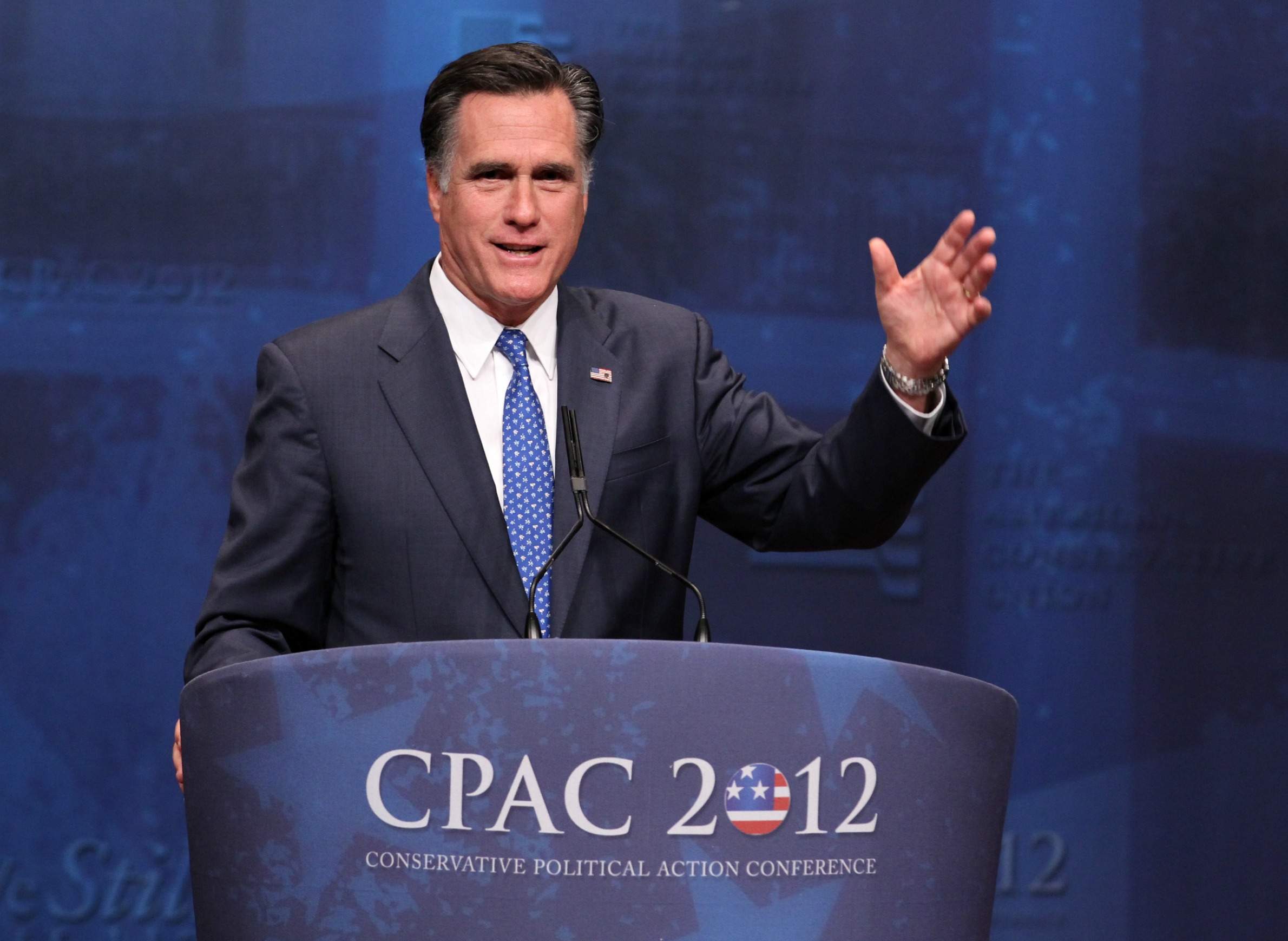
Mitt Romney speaking at the 2012 Conservative Political Action Conference.

Mitt Romney speaking at the 2012 Conservative Political Action Conference.
The 2012 Republican presidential primary marked 100 years of Wisconsinites electing delegates to the major party conventions in open primaries — a system the state pioneered. That year's cycle also brought an increasingly rare spotlight to what is now a late-primary state, a contest that campaigns and media often treat as less important than earlier races like the Iowa caucuses, New Hampshire primaries and multistate Super Tuesday pileup.
Wisconsin's primary essentially marked the end for former U.S. Sen. Rick Santorum of Pennsylvania, and solidified fitful support for former Massachusetts Gov. Mitt Romney. Even before ultimately nominating Romney, Republicans began to hope they could win Wisconsin's electoral votes for the first time since 1984, capitalizing on Gov. Scott Walker’s victory in the June 2012 recall election and support for freshman U.S. Sen. Ron Johnson, elected in the 2010 GOP wave.
In the days leading up to the April 3 primary, polls showed that it would likely be a close race between Romney and Santorum. A couple days before the primary, the New York Times framed Wisconsin as a chance for Romney to gain "closure" and claim definitive victory over his remaining challengers, most of whom accused him of being too moderate. (In a story a couple weeks before the primary, NPR offered a similar analysis but reported the gubernatorial recall race was overshadowing the presidential race.)
Romney bested Santorum by seven percentage points in Wisconsin, and less than a week later, Santorum announced he was dropping out of the race. This decisive turn in a relatively late primary state shows how wildly the predictions and strategic priorities of a primary can change week to week and cycle to cycle. Santorum had defeated Romney in the Iowa caucuses and in several Southern states. Some of those victories came after Romney declared Santorum's campaign to be at a "desperate end."
It's hard to say what the 2012 outcome portends, if anything, for Wisconsin's role in the 2016 race. But state elections officials are predicting record turnout on the April 5 ballot, and the Washington Post recently pointed out that Wisconsinites have an uncanny habit of voting for the eventual nominees.
Donald Trump has shaken up a once-crowded GOP field, establishing a clear lead in the delegate count over Ohio Gov. John Kasich and U.S. Sen. Ted Cruz of Texas. But Trump's opponents in the GOP are pinning their hopes on a brokered convention as a way to block his candidacy. (Meanwhile, Santorum ran again this year but had a much shorter go of it, suspending his campaign on Feb. 3, while Romney decided not to run again and emerged in March to urge fellow Republicans unify against Trump.) In Wisconsin, a growing number of legislators are lining up behind Cruz, while long-serving former Gov. Tommy Thompson has thrown his support to Kasich's campaign. On the Democratic side, U.S. Sen. Bernie Sanders of Vermont has proven a dogged challenger for former Secretary of State Hillary Clinton. Sanders is maintaining unpredictable momentum, as evinced by multiple primary wins, even as Clinton maintains a big lead in delegates.
All of this discussion and political maneuvering suggests Wisconsin's primary could be a turning point in the race, and lends credence to arguments by journalists and political figures across the spectrum who are saying the state could again prove pivotal in the outcome of the 2016 presidential nominations.